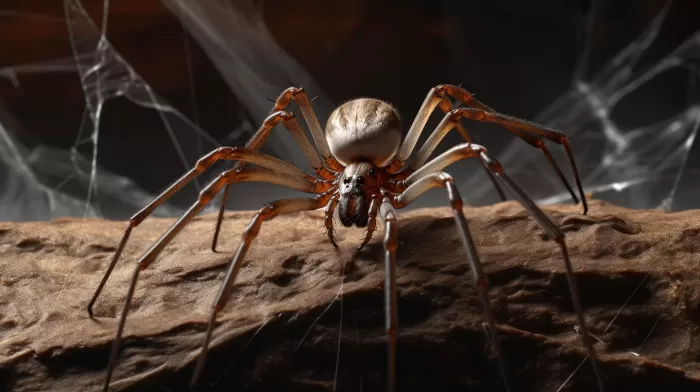You might not think of spiders as a significant threat to your health, especially with most of them being harmless. However, some nasty spiders, such as the brown recluse, can cause more harm than you might realize.
A study conducted by St. Jude Children’s Research Hospital discovered that some people develop a sudden anemia when bitten by a brown recluse. The venom of this small but dangerous spider can cause severe reactions and life-threatening complications, particularly in children.
Brown Recluse Spider: A Sneaky Culprit
The brown recluse spider is named for its color and reclusive behavior. It is found primarily in the Midwest and Southeast of the United States. In most cases, the brown recluse’s bite goes unnoticed as the symptoms take several hours to develop. These spiders are not aggressive and will only bite if they feel threatened.
Initial symptoms of the bite can include pain, redness, and swelling at the site of the bite. These symptoms may progress to a blister and a necrotic lesion with blue or purple areas surrounded by a whitish ring and large red outer ring, resembling a bullseye.
Anemia and Systemic Complications
Anemia is a condition in which your blood lacks enough healthy red blood cells to carry adequate oxygen to your body’s tissues. When bitten by a brown recluse, some people develop a sudden anemia, requiring hospitalization for treatment.
The research, published in The Journal of Pediatrics, found that six previously healthy adolescents had to be hospitalized due to acute anemia from a brown recluse bite. Although most people bitten by brown recluse spiders do not have to seek medical attention or even realize they were bitten, researchers noted that the spiders’ venom triggers a widespread reaction in about 30 percent of children.
It remains unclear what sets off anemia in certain victims. However, occasionally, the spider bite sufferers may also experience kidney failure and clotting problems. Children seem to be more likely than adults to develop systemic complications.
Rhabdomyolysis: A Rare Complication
In some cases, a brown recluse bite can lead to a rare but serious complication called rhabdomyolysis. Rhabdomyolysis is the breakdown of muscle tissue that releases a protein called myoglobin into the bloodstream.
Myoglobin can cause kidney damage and lead to kidney failure if not treated promptly. Symptoms of rhabdomyolysis include dark brown or reddish-brown urine, muscle aches, weakness, and fatigue.
Diagnosis, Treatment, and Prevention
Diagnosis of a brown recluse bite can be challenging, as the symptoms can resemble other conditions. Seeking medical attention promptly can help ensure a proper diagnosis and treatment.
Treatment for a brown recluse bite may include pain relief, cold compresses, elevation of the affected area, and antibiotics if infection occurs. In severe cases, surgery may be necessary to remove dead tissue and control the spread of the venom.
Prevention is the best way to avoid complications from a brown recluse bite. Keep your surroundings clutter-free, wear gloves when reaching into dark spaces, and seal entrances to homes to prevent spiders from entering. If you suspect a brown recluse spider is present in your home, contacting a professional exterminator can help ensure safety.
Educate Yourself and Stay Vigilant
Understanding the risks and signs of a brown recluse spider bite can save lives, especially for vulnerable groups like children. Keep an eye out for these small but dangerous creatures and make sure your family knows what to do if bitten.
Being vigilant and informed about these venomous spiders and the potential health risks associated with their bites is essential. Guess what? You’ve taken the first step to educate yourself by reading this article! Share this information with your family, friends, and community to help raise awareness and keep everyone safe from the hidden dangers of the brown recluse spider.



